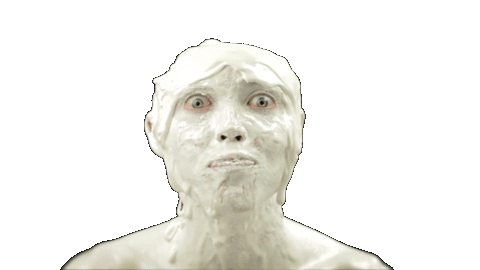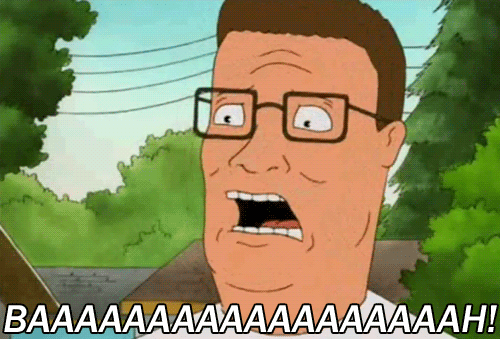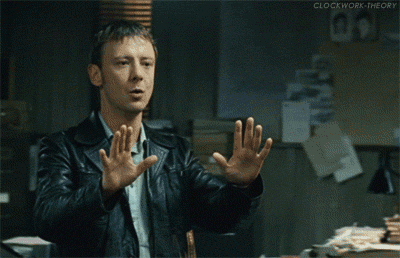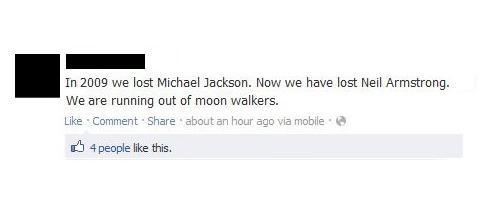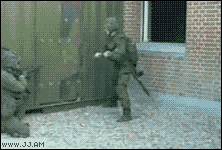-
Hey Guest. Check out your NeoGAF Wrapped 2025 results here!
You are using an out of date browser. It may not display this or other websites correctly.
You should upgrade or use an alternative browser.
You should upgrade or use an alternative browser.
Pics that make you laugh |OT2| It's a Dirty Job But Someone's Gotta Do It
- Thread starter ThaneKrios
- Start date
- Status
- Not open for further replies.
Is that Varg Vikernes..?
Ni~pa. Mii~
Dying of laughter
Oh goooooooooooood, morbidly curious....
ThaneKrios
Banned
Not a Jellyfish
but I am a sheep
i know this has been posted before but it is hilarious and I must know what it is from.

Anyone care to enlighten me?

Anyone care to enlighten me?
Lamel
Banned
This is too much for me.
The song Gangnam Style.
i know this has been posted before but it is hilarious and I must know what it is from.

Anyone care to enlighten me?
The song Gangnam Style.
weekend_warrior
Banned
i know this has been posted before but it is hilarious and I must know what it is from.

Anyone care to enlighten me?
http://www.youtube.com/watch?v=9bZkp7q19f0&feature=musicchart
Flame Lord
Member
The Sacred Book of the Werewolf is so rich in symbolism that I hardly know where to begin. On the surface, it seems to be the story of a teenage oriental prostitute named A Hu-Li who falls in love with a werewolf in her travels through modern day Russia. But underneath that relatively thin layer is a tale more about a Russian crisis of identity, and mankind's crisis of identity as well, as both attempt to transform itself from tailless monkeys into something else--the super-werewolf. Which direction should Russia go? Shall it bow to the temptations of globalization and take on the qualities of the western world, or should it go in the opposite direction and listen to the lessons of the east which find expression in this book through the eclectic narrative of A Hu-Li herself?
Despite A Hu-Li's chosen path through life, you discover that nothing about her is quite what it seems--you're led to believe she is a prostitute, but discover she is virgin. You are led to believe she is young, but discover she is thousands of years old. You think she is human, but then discover she is a werefox, and her profession originates from her ability to use her tail--or "tale"--which causes men to believe she is the exact incarnation of their most disturbing fantasy. When they are indulging in her services, however, they are merely indulging in something originating from their own mind as A Hu-Li busies herself by lying next to them, disconnected, reading--and scoffing--at scientific literature written by the likes of Stephen Hawking.
Early in the novel during her adventures, she ends up running into a prince-like Russian named Alexander who doesn't fall for her tricks that she plays with her tail and who, coincidentally, ends up ravaging her and robbing her of the thing she treasured the most--her virginity. You then discover this Alexander is a werewolf and, quite possibly, the super-werewolf that A Hu-Li and her family of werefoxes have been seeking for thousands of years. That is precisely where the cut and dry plot of the story ends and the true nature of Pelevin's purpose begins.
While reading the narrative, I couldn't help but get the impression that what I was reading took the form of a mosaic, or cards in a deck that had been shuffled, but instead of spades, hearts, diamonds, and clubs, I was seeing mysticism, erotica, Russian literary history, and a critique of globalization all at the same time. You don't automatically see purpose in the plot at first glance, and you wonder as the critics on the back of the book have done, whether or not Pelevin is playing some joke on his readers. The critics seem to pretend to get the joke and call it comedic, but I pulled from its words something completely different.
Which direction should Russia go? This question seemed to be at the heart of the book. I found it mostly in Alexander's thoughts as he spends more and more time with A Hu-Li. Alexander, the heart and soul of Russia, is protected by the atypical Russian male thug who drinks like a Russian is believed to drink and is unruly in a number of ways. He protects Alexander, run errands for him, but is ultimately nothing more than a façade as the true Russia, the true Alexander, operates behind the scenes. Russia has heart and soul and is tortured in his own way as he tries to decide what it is he must do as the world has moved on, which direction he should take in life. He currently operates in stealth mode--it is a part of his occupation, to uncover secrets and keep secrets of his own.
There is a part of Alexander which cannot stand the way the world is--the rubber, the tires, the cement, tall buildings, the vomit and pollution--and this finds form as smells from which he protects himself by wearing a face mask around his ultra-sensitive werewolf nose. He only removes it to take in the smells of A Hu-Li which he claims he could continue to smell forever. So much sweeter than the rest of the world.
Russia--personified as Alexander--wants to overcome the perceptive limitations it has of itself and become the super-werewolf which has much of the same ring to it as Nietzsche's Uberman, and it is truly tragic to see Russia in this state, going through its current struggle. You wonder if he will succeed. You wonder if everyone else will succeed along with him. In one stage of the novel, however, you get the feeling he will not, as we find Alexander transforming into a werewolf and howling near an oil well in a snow-like wasteland, pleading for oil to come forth in a re-enactment of a bizarre Russian Cinderella fairy tale. Truly not "super" at all. It is a tragic scene because of the suggestion that Russia has lost itself as it attempts to join in and contribute to the needs of globalization. "Please," Alexander seems to plead with his howling, "come forth dear blood of the earth and fill our wells!" This is one of his jobs, you discover. Alexander thus transforms into the wolf while doing so--the animal--in the same way that he transforms into the werewolf during his sexual sessions with A Hu-Li.
Both the west and the east play their influence out on Alexander throughout the pages of this book, and you are left wondering as you approach the end what direction he will take, and how it will affect A Hu-Li as well. In another unusual scene--this book is loaded with them--A Hu-Li kisses Alexander for the first time in an expression of love, which causes their relationship to spin into a completely different direction. Ultimately, Alexander ends up discovering the true age of A Hu-Li and flees her presence, claiming he cannot have sex with someone so old. To me, this reveals the choice that the author believes Russia is making in the world. Instead of seeking transcendence through ancient wisdom, it has gone the way of globalization--the whore--which paints itself young and chases men in turtleneck sweaters wearing jewelry and Nike shoes.
The ultimate benefactor in the entire story is A Hu-Li herself as she discovers she is an empty vessel that fills itself with lies, that the world is illusion, that she is an illusion, that she is the world, that everything is a dream, that she is the dream the world is dreaming, and that words are useless to describe the nothingness which is the truth inside of us all. Words attempting to describe this are nothing more than stepping stones on the pathway to transcendence--the pathway to the super-werewolf which is an inexplicable path that has taken A Hu-Li thousands of years herself to find. She seeks her true nature, and she does so by learning that her "tail" is the truth, her tail is the world that is lying to itself while it masturbates, transfixed by itself, transfixed by its own lies. Thus, in a paradoxical manner, all the lies we tell to ourselves--if we admit they are so--is this truth, and the key to this ancient knowledge finds form in the Sacred Book of the Werewolf that A Hu-Li is writing for her love--Alexander and, symbolically, Russia itself. She hopes it will eventually find its way into his hands as he pursues the younger pleasures awarded after burying his head in the world of globalization. Pelevin gives you the impression that this pursuit is all for naught, and Russia, like the rest of us, will never learn, but still we must try. Pelevin, in the role of A Hu-Li, gives his gift of ancient wisdom to Russia--his own Alexander.
Although it was a rough start at first, I truly enjoyed this book of material and spiritual transformation. Like the tailless monkeys in the story, we have forgotten we are lying to ourselves as we have lost our tail. The truth is the nothingness at our core, but it is a nothingness which can be anything at all. Stephen Hawking may have inside of his head the theory of everything, but Victor Pelevin reveals inside of us all the theory of nothing, and after reading this book, Pelevin's certainly seems the more endearing version of the two. Pick it up, read it, see what the werewolves may have to teach you. Enjoy!
THE FUUUUUUUUUUUUUUUUCK!?
heliosRAzi
Banned
The Awesomest
Member
darkiguana
Member
Surely that bit was added in later
It's still funny.
How recent would that nintendo power have to be to have sonic the hedgehog in it anyway?
Back in the nintendo power heyday of foldouts and mini fold in the frickin middle poster inserts sega was a dirty word
dark_chris
Member
This is perfect!
GhostWriter24
Member
Who quotes something from GameTrailers? That shit is amateur hour, dude.
shanshan310
Member
BackwardsSuggestions
Member
Amanda Bieber sounds as if she knows what she's talking about.
Wow, I love this! Do they have more video's like this?
edit: Oh god... http://www.youtube.com/watch?v=j0_fVzTJO-8
He over dosed...on teh stupid.
You know this is the first I have heard about Neil Armstrong being dead?
legacyzero
Banned
RIP Satchmo.
Rubbish King
The gift that keeps on giving
Amanda Bieber, what?
Whoa whoa whoa, my bro looking at ladies in a magazine? Don't you know about internet porn?
TheLastFantasy
Member
Quoted for size.
Jack Scofield
Member
This is fantastic.
ball.gif

- Status
- Not open for further replies.














